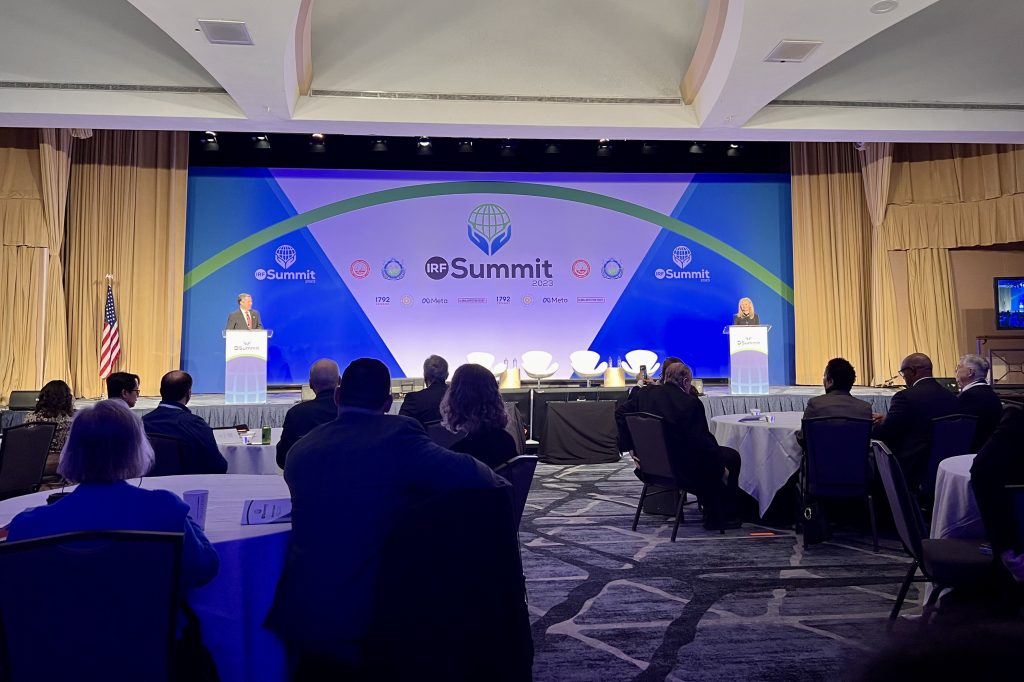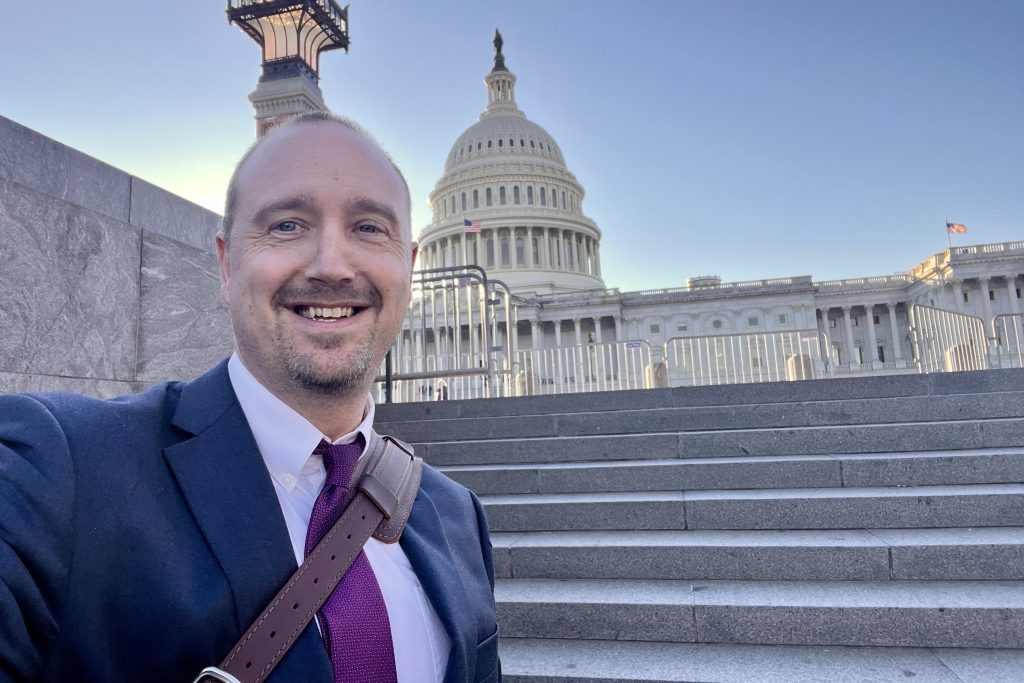
The International Religious Freedom (IRF) Summit, in an attempt to “increase public awareness and political strength for the international religious freedom movement,” convened organizations from across the globe that are passionate about and committed towards religious freedom. The Summit, for which over 1000 people had registered, was held in Washington D.C., on January 31 and February 1, 2023.
Dr. Wisdom attended the IRF roundtable meeting in the US Senate building where around 120 people convened to gain an insight into the history of the organization and the plans for how it is moving forward. It was revealed that the regular meetings developed when former ambassador Brownback suggested that they meet weekly, leading to an increase in attendance. The state desire of the IRF secretariat is to “move the needle” in civil society; and they have a three-year grant from the Templeton Foundation to develop the emerging organization. During the event, the former and current United States Commission on International Religious Freedom (USCIRF) Commissioners, Representatives from the US State Department and the United States Agency for International Development (USAID), and a number of leaders in civil society addressed the gathering.

Future plans of the IRF include further development of the roundtables in other countries (You can access the list here) though actionable information is limited, and the stated goal of the IRF Secretariat is to support an ecosystem of builders of religious freedom, focusing on engagement; a slightly different approach from advocacy.
The conveners of the summit, Sam Brownback and Katrina Lantos Swett hosted the event “In Solidarity with the Persecuted” at which, after some framing remarks, around eight members of persecuted minorities around the world offered testimony and information on the experiences of their communities. The Summit consisted of plenary talks, breakout sessions, and ad hoc meetings. The breakout sessions followed four tracks: defending IRF, documenting IRF, developing IRF, and denial of IRF.
The Summit also proved to be a valuable space for reconnecting and forming new connections with significant figures in the field, setting the foundation for developing trust and opening the door of possibility for partnerships. The IIRF commends the work of the summit and looks forward to future initiatives generated by gathering such a mixed group of actors, researchers, and policy makers.